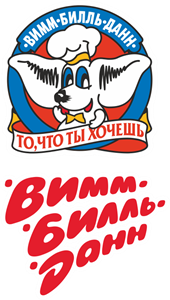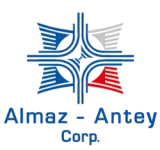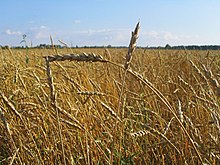
Cola is a carbonated soft drink flavored with vanilla, cinnamon, citrus oils, and other flavorings. Cola became popular worldwide after the American pharmacist John Stith Pemberton invented Coca-Cola, a trademarked brand, in 1886, which was imitated by other manufacturers. Most colas originally contained caffeine from the kola nut, leading to the drink's name, though other sources of caffeine are generally used in modern formulations. The Pemberton cola drink also contained a coca plant extract. His non-alcoholic recipe was inspired by the coca wine of pharmacist Angelo Mariani, created in 1863.

Yekaterinburg is a city and the administrative centre of Sverdlovsk Oblast and the Ural Federal District, Russia. The city is located on the Iset River between the Volga-Ural region and Siberia, with a population of roughly 1.5 million residents, up to 2.2 million residents in the urban agglomeration. Yekaterinburg is the fourth-largest city in Russia, the largest city in the Ural Federal District, and one of Russia's main cultural and industrial centres. Yekaterinburg has been dubbed the "Third capital of Russia", as it is ranked third by the size of its economy, culture, transportation and tourism.

Novosibirsk Oblast is a federal subject of Russia located in southwestern Siberia. Its administrative and economic center is the city of Novosibirsk. As of the 2021 Census, Novosibirsk Oblast had a population of 2,797,176.

San Miguel Corporation, abbreviated as SMC, is a Philippine multinational conglomerate headquartered in Mandaluyong, Metro Manila. The company is one of the largest and most diversified conglomerates in the Philippines. Originally founded in 1890, San Miguel has ventured beyond its core business, with investments in various sectors such as food and drink, finance, infrastructure, oil and energy, transportation, and real estate.

The Coca-Cola Company is an American multinational corporation founded in 1892. It produces Coca-Cola. The drink industry company also manufactures, sells, and markets other non-alcoholic beverage concentrates and syrups, and alcoholic beverages. The company's stock is listed on the NYSE and is part of the DJIA and the S&P 500 and S&P 100 indexes.

Coca-Cola Amatil Limited (CCA) was an Australian bottler of non-alcoholic beverages that existed from 1904 to 2021, when it merged with Coca-Cola European Partners to form Coca-Cola Europacific Partners. It was one of the largest bottlers of non-alcoholic ready-to-drink beverages in the Asia-Pacific region and one of the world's five major Coca-Cola bottlers. CCA operated in six countries—Australia, New Zealand, Indonesia, Papua New Guinea, Fiji and Samoa. The company also bottled beer and coffee.

PepsiCo, Inc. is an American multinational food, snack, and beverage corporation headquartered in Harrison, New York, in the hamlet of Purchase. PepsiCo's business encompasses all aspects of the food and beverage market. It oversees the manufacturing, distribution, and marketing of its products. PepsiCo was formed in 1965 with the merger of the Pepsi-Cola Company and Frito-Lay, Inc., PepsiCo has since expanded from its namesake product Pepsi Cola to an immensely diversified range of food and beverage brands. The largest and most recent acquisition was Pioneer Foods in 2020 for US$1.7 billion and prior to it was buying the Quaker Oats Company in 2001, which added the Gatorade brand to the Pepsi portfolio and Tropicana Products in 1998.

Fast-moving consumer goods (FMCG), also known as consumer packaged goods (CPG), are products that are sold quickly and at a relatively low cost. Examples include non-durable household goods such as packaged foods, beverages, toiletries, candies, cosmetics, over-the-counter drugs, dry goods, and other consumables.

Ural Economic Region is one of twelve economic regions of Russia. This prominent industrial region consists of the following subdivisions : Bashkortostan (Ufa), Chelyabinsk Oblast (Chelyabinsk), Kurgan Oblast (Kurgan), Orenburg Oblast (Orenburg), Perm Krai (Perm), Sverdlovsk Oblast (Yekaterinburg) and Udmurt Republic (Izhevsk). It is mostly located in the Central, and partly in the Southern and Northern parts of the Urals, but also includes parts of the East European and West Siberian Plains. Its extent is different from that of the Ural Federal District; Bashkortostan, Orenburg Oblast, Perm Krai and Udmurtia are in the Volga Federal District while the other three are in the Ural Federal District.
Beatrice Foods Company was a major American food conglomerate founded in 1894. One of the best-known food processing companies in the U.S., Beatrice owned many well-known brands such as Tropicana, Krispy Kreme, Jolly Rancher, Orville Redenbacher's, Swiss Miss, Peter Pan, Avis, Milk Duds, Samsonite, Playtex, La Choy and Dannon.
Since its invention by John Stith Pemberton in 1886, criticisms of Coca-Cola as a product, and of the business practices of The Coca-Cola Company, have been significant. The Coca-Cola Company is the largest soft drink company in the world, distributing over 500 different products. Since the early 2000s, the criticism of the use of Coca-Cola products, as well as the company itself, escalated, with criticism leveled at the company over health effects, environmental issues, animal testing, economic business practices and employee issues. The Coca-Cola Company has been faced with multiple lawsuits concerning the various criticisms.

Wimm Bill Dann is one of Europe's largest dairy products companies. WBD produces yogurt, milk, flavored milk, fruit juices, and other soft drinks. It holds a 34% share in all dairy products in Russia, and a 20% share of the fruit drink market.

JSC Concern VKO "Almaz-Antey" is a Russian state-owned company in the arms industry, a result of a merger of Antey Corporation and NPO Almaz, unifying some of the national military enterprises, in particular, the developers of anti-aircraft defence and cruise missile systems. The organisation is headquartered in Moscow and is the world's eighth-largest defence contractor measured by 2017 defence revenues. In 2017, Almaz-Antey had arms sales of $9.125 billion.

St. Petersburg is a major trade gateway, financial and industrial center of Russia specialising in oil and gas trade, shipbuilding yards, aerospace industry, radio and electronics, software and computers; machine building, heavy machinery and transport, including tanks and other military equipment, mining, instrument manufacture, ferrous and nonferrous metallurgy, chemicals, pharmaceuticals, medical equipment, publishing and printing, food and catering, wholesale and retail, textile and apparel industries, and many other businesses.
Ülker is a Turkish multinational food and beverage manufacturer based in Istanbul, Turkey. Its products are exported internationally, to 110 countries. Ülker's core products are biscuits, cookies, crackers, and chocolates, although it has expanded to other categories.

Ural Mining and Metallurgical Company is a Russian metallurgical company based in Verkhnyaya Pyshma. It is the second largest copper producer in Russia.
Metallurgy section on site Ministry of Industry and Trade of the Russian Federation, Russian Ministry of Industry, March 18, 2009, at Internet Archive</ref> The volume of metallurgical production was 1.87 trillion rubles (2009). Investments in fixed assets in metallurgy were 280 billion rubles (2008). The average salary in the metallurgical industry was 23,258 rubles / month.

Food industry in Azerbaijan is a branch of industry that processes, prepares, preserves and packs agricultural raw materials with appropriate methods in the country. Regarding to the volume of industrial production agrarian ranked the first among the other procession industries.

Industry plays an important role in the economy of Belarus. In 2020, industry accounted for 25.5% of Belarusian GDP. Share of manufacturing in Belarusian GDP was 21.3% in 2019. United Nations Economic Commission for Europe described Belarus as having "a well-developed industrial sector and highly skilled workforce". In 2020, 23.5% of Belarusian workforce was employed in industry. In 2019, total industrial production amounted to 115.7 billion Belarusian rubles ; in 2020, it rose to Rbls 116.5 billion. Belarusian industry is export-oriented: in 2020, 61.2% of industrial output was exported. The most important sector is food industry. Other well-developed sectors of industry include chemical industry, automotive industry and manufacturing of other machinery equipment.

















